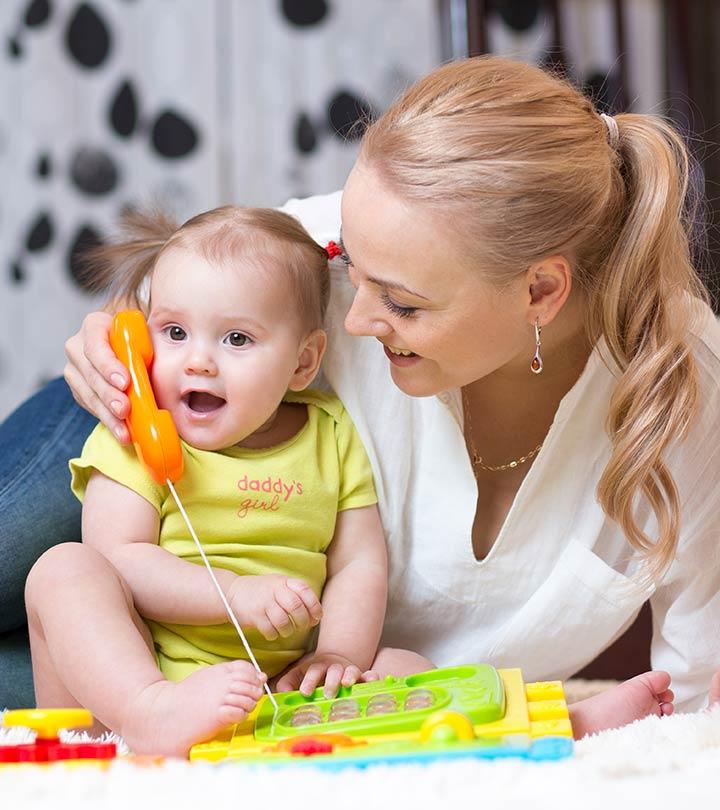
Image: Shutterstock
Understanding how your birth order affects your parenting style is like discovering a hidden roadmap to better connect with your children. Whether you’re the oldest, middle, youngest, or only child, your place in the family can shape the way you raise your own kids. By delving into the typical traits linked to each birth order, we can gain valuable insights into our parenting approach and how it impacts our children’s upbringing. Let’s take a closer look at these traits and how they influence the way we interact with our little ones. Read on to know more!
Oldest Child
Image: Shutterstock
Traits As Children
1. Shouldering Responsibility
As the oldest child, you often found yourself taking on responsibilities beyond your years, whether helping with chores, caring for younger siblings, or being a role model.
2. Trailblazing
You were the pioneer in your family, setting the tone for the family dynamic and guiding your siblings as a mentor.
3. Mature And Reliable
From an early age, you exhibited maturity and reliability, earning the trust of both parents and siblings through your dependable nature.
Parenting Style
Image: Shutterstock
1. Structured And Disciplined
You maintain a structured approach, providing clear guidance and boundaries for your children.
2. High Expectations
You encourage your children to strive for excellence in all aspects of their lives.
3. Leadership Role
You naturally take charge, guiding and instructing your children with confidence.
4. Sense Of Authority
Your children respect your authority as you lead your family with confidence.
5. Well-Established Routines And Rules
Your household runs smoothly with consistent routines and clear rules, providing stability for your children.
Middle Child
Image: Shutterstock
Traits As Children
1. Adaptability
Middle children excel at adapting to various situations, navigating between the needs of their older and younger siblings.
2. Peacemaking Skills
They develop strong peacemaking skills, often acting as mediators during conflicts between siblings.
3. Negotiation Skills
Middle children become adept negotiators, finding compromises and solutions that satisfy all parties.
4. Desire To Avoid Conflict
They have a natural aversion to conflict, preferring to resolve issues peacefully and maintain positive relationships.
Parenting Style
Image: Shutterstock
1. Prioritizing Fairness And Harmony
You prioritize fairness and harmony within your family, ensuring each child receives equal attention and support.
2. Equal Attention And Support
You strive to give each child equal attention and support, addressing their individual needs and interests.
3. Fostering An Inclusive Environment
Your parenting promotes an inclusive environment where everyone’s needs are respected, fostering cooperation among siblings.
Youngest Child
Image: Shutterstock
Traits As Children
1. “The Baby” Of The Family
Youngest children relish being the baby, enjoying the attention and indulgence.
2. Outgoing And Charming
They are often outgoing and charming, captivating those around them.
3. Creativity
Youngest children exhibit creativity and imagination, expressing themselves artistically.
4. Seeking Attention And Approval
They seek attention and approval from both siblings and parents, craving recognition.
Parenting Style
Image: Shutterstock
1. Laid-Back And Flexible
You adopt a relaxed approach, allowing your children to grow at their own pace.
2. Encouragement Of Creativity And Independence
You prioritize creativity and independence in your children.
3. Freedom To Explore
Your children have the freedom to explore and learn through hands-on experiences.
4. Warm And Nurturing Environment
Your nurturing nature creates a loving environment where your children feel cherished.
Only Child
Image: Shutterstock
Traits As Children
1. Undivided Attention
Only children benefit from receiving undivided attention from their parents, allowing them to develop a strong sense of self and independence.
2. Independence
Raised without siblings, only children learn to rely on themselves and become self-sufficient at an early age, fostering independence.
3. Self-Reliance
With no siblings to depend on, only children learn to trust their own abilities and make decisions independently, cultivating self-reliance.
4. Strong Relationships With Adults
Due to their close bond with their parents, only children often develop strong relationships with adults, seeking guidance and support from them.
Parenting Style
Image: Shutterstock
1. Individualized Attention And Support
You prioritize providing personalized attention and support to your only child, catering to their unique needs and interests.
2. Deep Involvement
As a parent, you are deeply involved in your child’s life, actively participating in activities together and building a strong bond through shared experiences.
3. Close Bond
Your focus on fostering a close bond with your child creates a strong foundation for their emotional development and well-being.
4. High Expectations
You have high expectations for your only child, pushing them to achieve their full potential and excel in various aspects of their life.
5. Desire For Achievement
Your emphasis on your child’s development and success motivates them to strive for excellence and pursue their goals with determination.
While birth order can influence your parenting style, it’s essential to remember that every family is unique, and individual personalities play a significant role in shaping parenting behaviors. Understanding the traits associated with your birth order can offer insights into your strengths and tendencies as a parent. But it’s essential to be flexible and adaptable in response to your children’s needs. By fostering open communication, empathy, and love within your family, you can create a nurturing environment where your children can thrive, regardless of birth order.




















